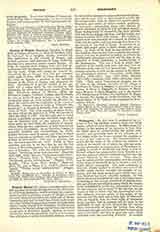

Cosmas of Prague, Bohemian historian, b. about 1045, at Prague, Bohemia; d. there, October 21, 1125. He belonged to a knightly family, received his first instruction in the schools of Prague, and studied grammar and dialectics at Liege under the direction of a renowned master named Franco. At Liege he acquired good literary taste and that acquaintance with the classics which is evident throughout his work. While still young he entered ecclesiastical life at Prague, but was not ordained priest until June 11, 1099, at Gran, Hungary. In due time he became a member of the cathedral chapter of St. Vitus in Prague, and ultimately its dean. According to a general custom of the age, he was married to one Bozetecha, by whom he had a son named Henry or Zdic, afterwards Bishop of Olmutz. With the Bishops of Prague, Gebhard, Cosmas, and Hermann, he was on terms of great intimacy, and often accompanied them on their travels; he likewise enjoyed the esteem and the confidence of the rulers of Bohemia. Cosmas wrote in Latin a “Chronica Bohemorum”, or history of Bohemia from the earliest times to 1125. For the early part he relied almost exclusively in popular tradition, since there was no previous work on the subject. For the other parts he drew from the testimony of eyewitnesses, from his own experiences, or from monuments and written documents. As an historian, Cosmas is generally truthful and conscientious; he distinguishes between what is certain and what is based only on rumors or tradition, and often indicates his sources of information. The style is pleasing, and the character-sketches are vivid. Owing to these qualities, and also to the fact that he was the first writer of Bohemian history, he is called the Herodotus of Bohemia.
FRANCIS J. SCHAEFER

